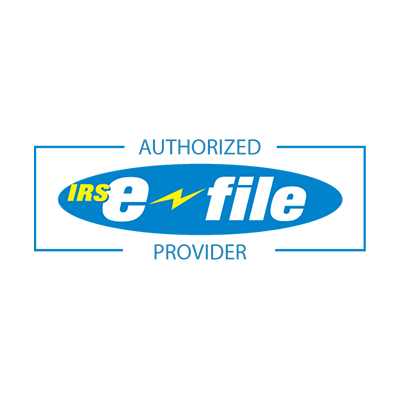There’s an old African proverb that goes, “If you want to go fast, go alone; if you want to go far, go together.” While working on a team isn’t always easy, when you find the right dynamic, each person’s strengths and talents are effectively recognized and utilized. This is especially true in team trucking, where working together can really make a difference. In the trucking industry, one can typically function as an employee of a trucking company or as an independent owner-operator. In both cases, the driver generally operates with little to no consideration of other drivers. Owner operator teams are an alternative arrangement in which two or more drivers collaborate as a team to transport cargo.
Trucking as owner operator teams can be a great way to maximize efficiency and increase earning potential with lucrative split income opportunities. Added benefits include increased safety and better work-life balance. In this model, drivers can take turns driving and resting, which allows them to cover more ground and haul more goods in a shorter time frame.
Understanding the Basics of Tax Responsibilities for Owner Operator Teams
Amidst all the benefits of driving as owner operator teams there’s one complexity – taxes. Because team drivers are paid differently than solo drivers, their taxes are also handled differently. Typically, it’s incumbent upon the owner of the truck to take full financial responsibility; the truck owners get paid and then pay their teammates out of those earnings.
Tax payments are dependent upon how owner operator teams are structured. It is critical for the lead driver to set up a business for the team effort to optimize tax liabilities. Since the lead driver is responsible for paying the second driver, a “paper trail” is necessary to protect the lead driver from paying taxes on all earnings. Although consistent payments are made to the second driver and bank statements could theoretically prove the business relationship, this does not suffice as proper tax documentation. A legitimately structured business will show that the income is divided and ensure that both parties pay only the taxes for which they are responsible.
Shared Expenses and Joint Record Keeping
As owner operators, meticulous record-keeping for tracking expenses is an absolute necessity; these are tax-deductible and can have a significant impact on tax returns. This can be tricky for owner operator teams since some are individual expenses while others are shared. Expenses like meals, mobile phone plans, association dues, and license fees pertain strictly to the individual and each driver is responsible for maintaining records for them and claiming them as deductions when they file their individual tax returns. Shared expenses for owner operator teams would include items that are utilized by both parties such as fuel, insurance, and maintenance.
Team drivers should determine up front which driver is responsible for certain expenses, and ideally, put this agreement into writing to ensure there is no misunderstanding. Expenses can be divided in several different ways for owner operator teams, but the simplest method is to split every expense halfway. The importance of highly organized, thorough record-keeping cannot be overstated for team drivers. Keeping all receipts and using expense-tracking software is highly recommended.
Programs and resources that allow for sharing of documents and joint editing grant both parties the ability to track and update expense logs. Documenting the division of expenses is important so that the second driver can claim his or her portion as deductions on tax returns. Otherwise, the lead driver could claim all expenses.
The Different Business Structure Options
Owner operator teams can be structured in different ways. Because there are many other company formation options and business considerations too, it is highly advisable to engage the services of a licensed business attorney to advise you through this often complicated process.
The two main business entities for this model are a sole proprietorship and a Limited Liability Company (LLC). In both cases, the second driver could be considered as a “company driver” for the lead driver (owner).
The truck owner or lead driver can set up a sole proprietorship, an enterprise owned and operated by one person. Under this arrangement, the lead driver manages settlements, pays the other team driver, and tracks their earnings. At the end of the year, the lead driver, the owner of the sole proprietorship, gives either an earnings statement or a 1099 form to the other team member(s).
Alternatively, the truck owner or lead driver can set up a Limited Liability Company (LLC). In this case, rather than either driver being paid directly, earnings will go into a business account and then be disbursed to the team members. The lead driver will receive a 1099 or a year-end summary for filing taxes as a business. The second driver could be classified either as an employee of the business or as an independent contractor; however, keep in mind that classifying someone as an independent contractor must meet US Labor laws and IRS regulations pertaining to hiring an independent contractor.
Classifying someone as an employee also has its own Department of Labor and IRS regulations to follow. If classified as an employee, he or she will receive a W2 for taxes, whereas, an independent contractor will receive a 1099 form. If classified as an employee, however, no expenses can be deducted from his or her income for tax purposes.
If you need to change your business name to accommodate other drivers, you may need to get a new Employer Identification Number (EIN) so everything matches up when your file Form 2290. Mismatched names and numbers can cause your Schedule 1(s) to be delayed.
Filing Tax Forms and Managing Tax Payments Made Easy
The Heavy Vehicle Use Tax (HVUT) must be paid annually via form 2290 for each vehicle with a gross weight over 55,000 pounds. The tax liability falls on the individual to whom the truck is registered, so only one of the team members in owner operator teams must file form 2290. It should be handled by the lead driver, who is also in most cases the owner of the business entity and the truck. The second driver can then reimburse the lead driver for his or her half of the HVUT. Both parties, however, should be cognizant of the August 31st deadline and work together to ensure timely filing of form 2290 and payment of the HVUT to avoid financial penalties.
One of the easiest ways to ensure HVUT filing is with i2290. You can enjoy the convenience of e-filing your return from anywhere with internet access, saving time and money, while reaping the additional benefits of easily accessible digitally maintained records for seven years, filing VIN corrections and weight increase amendments for free, and access to a world-class customer service team.
Create an account with i2290 today and answer a few questions about your vehicle and your business. Then for a small fee, we will do the calculations for you and generate your stamped Schedule 1 in a matter of minutes!
Special note: This article is for general purposes, and is not intended to provide, and should not be relied on for tax, legal, investment, or accounting advice. The best way to ensure you’re properly filing and paying appropriate taxes is by following IRS regulations and consulting with a tax professional.


